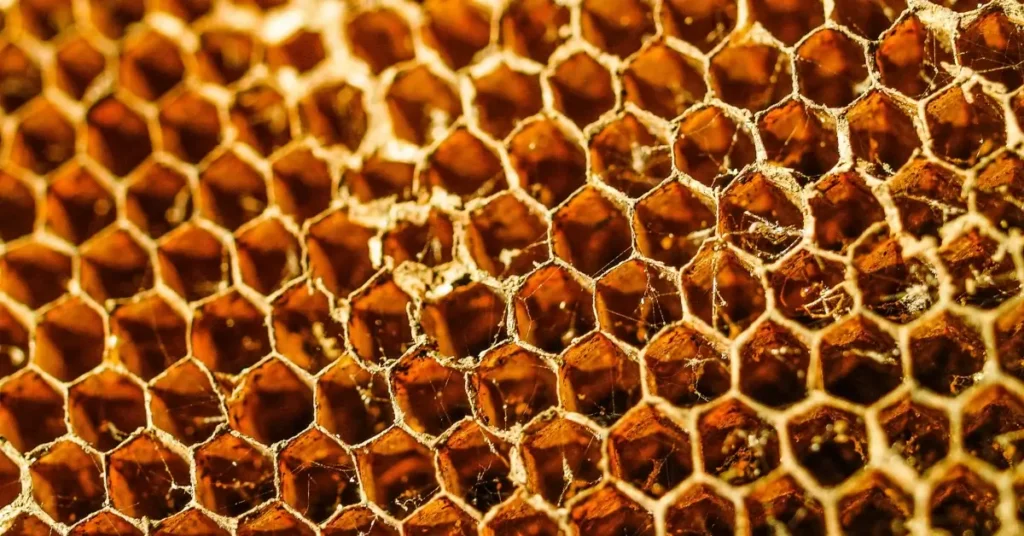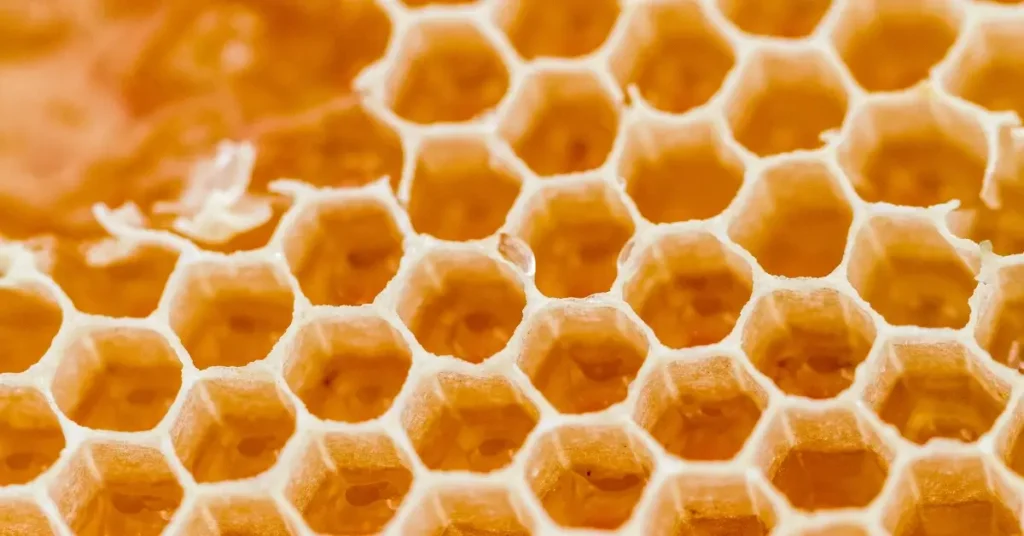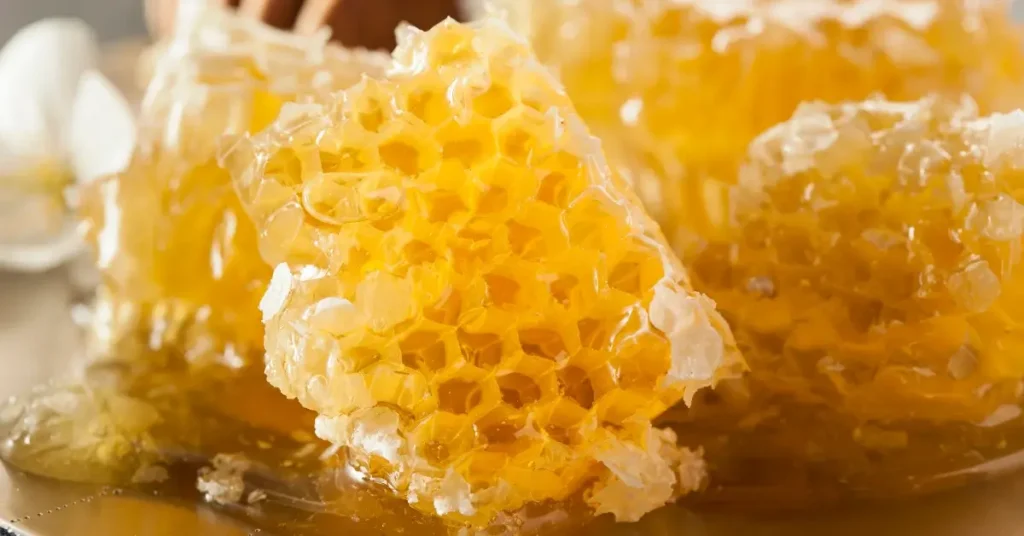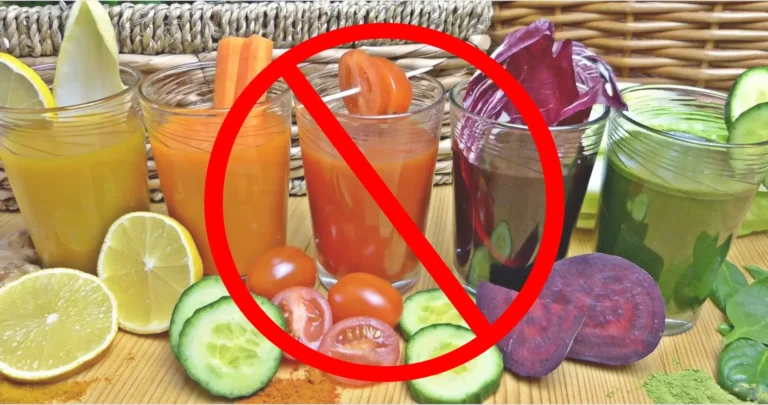When it comes to sweetening our tea or drizzling over our favorite breakfast dish, we often reach for honey. But did you know that there are different types of honey and raw honey has some impressive nutrition facts to offer? In this article, we’ll delve into the world of raw honey nutrition facts, showing you just how beneficial this natural sweetener can be for our health.
Raw honey is the unprocessed, unpasteurized version of the honey you typically find in stores. It retains many of the natural nutrients and enzymes that can get lost during the processing of regular honey. We will explore the vitamins, minerals, and antioxidants found in raw honey that can support our overall well-being.
One of the most fascinating aspects of raw honey is that its nutritional profile can vary, depending on the flowers the bees have foraged on. This makes each batch of raw honey a unique and flavorful experience. So, let’s dive into the world of raw honey nutrition facts and discover the amazing benefits it provides.
Raw Honey Nutrition Facts
We are all aware of the sweet taste of honey, but have you ever wondered about the raw honey nutrition facts? In this section, we will take a closer look at the nutritional value of raw honey, focusing on its calories, vitamins, and minerals.
Calories
Raw honey contains approximately 60.1 to 64 calories per tablespoon (21 grams). These calories primarily come from carbohydrates, specifically the sugars fructose and glucose. While it is important to consume honey in moderation, it is worth noting that it is a better alternative to refined sugar due to its natural origins and nutritional profile.
Vitamins and Minerals
Raw honey is not just a source of calories, it also contains a variety of essential vitamins and minerals to support our overall health. It is particularly high in B vitamins, calcium, manganese, potassium, magnesium, zinc, and iron, along with polyphenolic antioxidants that contribute to better health.
- B vitamins: These vitamins are essential for a variety of bodily functions such as maintaining healthy skin, supporting the nervous system, and converting food into energy.
- Calcium: This mineral is crucial for maintaining strong bones and teeth, as well as assisting in nerve function and muscle movement.
- Manganese: Manganese contributes to the proper functioning of the nervous system and plays a role in carbohydrate metabolism.
- Potassium: Essential for proper muscle function and maintaining fluid balance, potassium is an important mineral found in raw honey.
- Magnesium: This mineral helps regulate muscle and nerve function, blood pressure, and supports the immune system.
- Zinc: A vital component of many enzymes, zinc is necessary for proper wound healing and immune function.
- Iron: Iron is essential for red blood cell production and oxygen transport in the body.
While raw honey should not be considered a primary source of nutrients due to its high sugar content, it does provide a range of beneficial vitamins and minerals that can contribute to a balanced diet. Enjoy it in moderation and remember to prioritize nutrient-dense whole foods to maintain overall health.
Health Benefits of Raw Honey

When it comes to raw honey nutrition facts, there are many potential health benefits that we’d like to discuss. In this section, we will explore a few of the notable advantages associated with the consumption of raw honey.
Antioxidant Properties
Raw honey is an excellent source of antioxidants, which are essential in our efforts to fight off free radicals. Free radicals can cause cell damage, and by incorporating raw honey into our diet, we can reduce the risks associated with conditions like cancer, heart disease, and inflammation.
Digestive Health
Another impressive aspect of raw honey nutrition facts is its potential role in promoting digestive health. The natural enzymes and prebiotics found in raw honey can aid digestion and fuel probiotics within our gut. A healthy gut is crucial for overall wellness, as it can improve our immunity, reduce inflammation, and support better nutrient absorption.
Heart Health
Lastly, raw honey may be good for our heart. Some studies suggest that the antioxidants found in honey can help lower blood pressure and reduce bad cholesterol levels. Maintaining a healthy blood pressure and cholesterol balance is fundamental for preventing heart disease and other cardiovascular-related issues.
Side Effects and Warnings
When exploring raw honey nutrition facts, it’s important to be aware of potential side effects and warnings. Although raw honey can offer various health benefits, it’s essential to keep in mind the risks associated with its consumption. In this section, we’ll examine the potential concerns related to allergies and infant risks.
Allergies
For those with allergies to pollen, consuming raw honey might trigger allergic reactions, such as itching, swelling, and shortness of breath. Raw honey contains bee pollen, and for some individuals, this can cause mild to severe reactions. It’s crucial to be cautious when consuming raw honey if you’re aware of any existing pollen allergies. In case of any adverse reactions, consult with a medical professional immediately.
Infants Risk
One of the most important warnings regarding raw honey consumption is the potential risk to infants under the age of one. Raw honey can contain botulinum spores, which may lead to infant botulism – a rare but serious illness that can cause difficulty eating, weakness, and breathing problems. The immune systems of infants are not fully developed, making them more vulnerable to the harmful effects of botulinum spores. It’s crucial to avoid giving raw honey to infants and opt for safer alternatives like pasteurized honey or age-appropriate sweeteners.
How to Incorporate Raw Honey into Diet

When people hear the term “raw honey nutrition facts,” they often become curious about how to add this natural sweetener to their diet. In this article, we’ll cover two easy ways to incorporate raw honey into your daily meals, including beverages and cooking recipes.
Beverages
Raw honey can be a delightful addition to various beverages. It adds a touch of natural sweetness and allows you to enjoy the many nutritional benefits it has to offer. Here are a few ideas:
- Tea and Coffee: Instead of using refined sugar, stir a spoonful of raw honey into your favorite hot beverages. Make sure the drink isn’t too hot, as very high temperatures can reduce the benefits of raw honey.
- Smoothies: Upgrade your smoothies with a touch of natural sweetness by incorporating raw honey. This will add not only flavor but also a touch of calcium, potassium, and antioxidants.
- Detox drinks: Raw honey can help enhance your detox drinks (such as lemon or apple cider vinegar concoctions) by toning down the acidic taste and adding valuable nutrients.
Cooking Recipes
Integrating raw honey into your cooking will allow you to explore its full potential in various dishes. Remember to use it sparingly, as too much can affect the texture and taste of your meal. Here are a few recipe ideas:
- Salad dressings: Create a mouthwatering dressing by mixing raw honey with olive oil, vinegar, and herbs. Drizzle it over your salads to elevate the flavor and to reap the health benefits of raw honey.
- Marinades: Add raw honey to your marinades for a touch of sweetness that will caramelize and create a beautiful glaze when cooked. Pair it with soy sauce, garlic, and spices for an irresistible mix.
- Desserts: Use raw honey in baking as a natural sweetener, but be mindful of the temperature during the process. Experiment with simple recipes like raw honey oat bars or almond butter cookies to experience the natural sweetness and benefits raw honey has to offer.
Incorporating raw honey into your diet is easy and enjoyable. By simply adding it to beverages and a variety of recipes, you’ll be able to experience its unique taste and valuable nutrients. Happy indulging!
Our Thoughts on Raw Honey Nutrition Facts

Raw honey nutrition facts show that it’s not only a natural sweetener but also packed with nutrients. We love incorporating raw honey into our diets because of its health benefits, and we believe you will too once you learn some tips and best practices for consuming it.
First, it’s essential to always choose high-quality, unprocessed raw honey. Remember that raw honey contains an impressive range of elements such as proteins, amino acids, B vitamins, calcium, manganese, potassium, magnesium, zinc, and iron. When honey undergoes processing, many of these nutrients can be lost.
Next, don’t heat raw honey above 95 degrees Fahrenheit as it may destroy its nutritional properties. In its natural state, honey is never heated above the temperature of the bee hive, so try to maintain this temperature range when using it in your recipes.
Consider using raw honey as a healthier alternative to sugar for sweetening beverages like tea or coffee. Keep in mind that honey has a lower glycemic index than sugar. It’s estimated to have a glycemic index of around 60.
Here are some creative ways to incorporate raw honey into your daily meals:
- Add a spoonful of honey to your morning yogurt or oatmeal.
- Use it as a topping for toast with almond butter, banana slices, and a sprinkle of cinnamon.
- Drizzle over fresh fruit or a salad for a sweet and healthy touch.
Incorporate raw honey in moderation, as it’s still a source of calories and sugars. One tablespoon contains around 64 calories and 17 grams of sugar.
By choosing quality raw honey and using it wisely, you can enjoy its incredible nutrition benefits without compromising your health goals. And the best part is that you can add a delicious touch of sweetness to your meals in a natural and healthful way. Happy honey-eating!
FAQ – Raw Honey Nutrition Facts
How healthy is raw honey?
Raw honey is renowned for its health benefits, as highlighted by raw honey nutrition facts. These facts reveal that raw honey contains antioxidants, enzymes, and essential minerals, contributing to its health-promoting properties. The raw honey nutrition facts also underscore its antibacterial and antifungal qualities, making it a nutritious and beneficial addition to a balanced diet.
Can you eat 100% raw honey?
Yes, you can eat 100% raw honey, and the raw honey nutrition facts reveal its natural purity and health benefits. According to raw honey nutrition facts, this unprocessed honey retains more natural vitamins, enzymes, and phytonutrients than regular honey, making it a healthier choice for consumption.
What is the nutrition data of raw honey?
The raw honey nutrition facts indicate that it is a rich source of natural sugars, primarily fructose and glucose, along with trace amounts of vitamins, minerals, and antioxidants. Delving into raw honey nutrition facts, one finds that it also contains small amounts of vitamins like B6, thiamin, niacin, riboflavin, and certain amino acids, making it more than just a sweetener.
What are your experiences with Raw Honey Nutrition Facts? Let us know in the comments!







